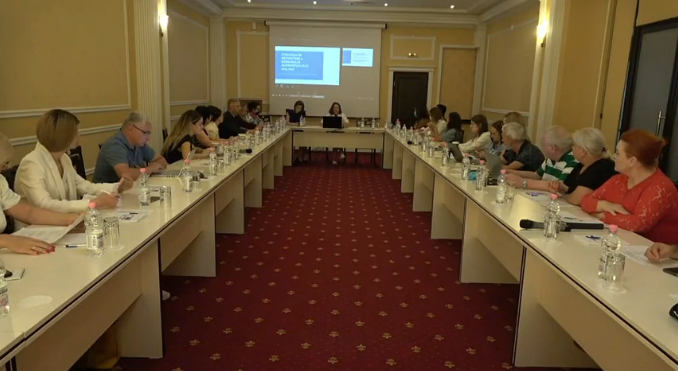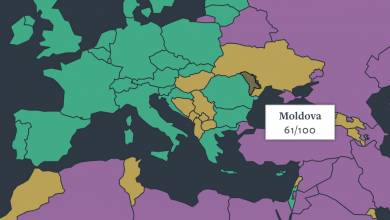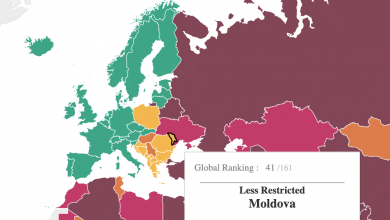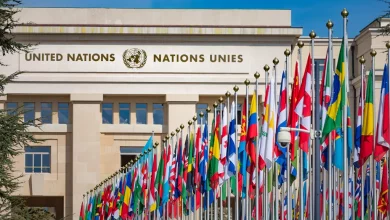Draft Strategy for the Development of the Audiovisual Field for the years 2023-2027, in Public Debate

Assuring real pluralism in audiovisual and the diversity of providers, these and other objectives can be found in the draft strategy for the development of the audiovisual field for the years 2023-2027, developed by the Audiovisual Council. Several representatives of media service providers, experts in the field and other market players participated in the public debates organized on July 22nd. During the event, representatives of televisions reported on several issues in the field, such as unfair competition of local channels with TV stations that rebroadcast content from abroad, financial independence and others.
The President of the Audiovisual Council, Liliana Vițu, presented the main ideas from the document. “The goal we are pursuing is to assure real audiovisual pluralism. We see this pluralism through the meeting of several factors (…) What we aim at achieving through this strategy is the diversity of media service providers, audiovisual media services and audiovisual programs within the same audiovisual media service, the presence of the opinions of the general public in media services audiovisual services, in particular linear ones, the presence of free, autonomous, economically and editorially independent media service providers and the public’s access to a wide range of opinions that are present day by day in audiovisual media services”, Liliana Vițu pointed out in the debates.
She also mentioned some identified problematic aspects regarding the authority’s levers regarding audiovisual media services that do not present sufficient data on the sources of financing and the ownership regime. “We also found deficiencies in the legislation. If they are required to publish the data, there is no penalty for not publishing that data. If they present us information more or less declaratively, what can the AC do? AC has no levers to reject the report or not to reject it. AC has certain levers, but we need to make changes in the legislation to make the part related to property insurance much more applicable”, said Liliana Vițu.
The President of the AC also referred to some decisions regarding the reorganization of the authority, such as the strengthening of monitoring capacities and the establishment of a function that will deal with public policies and analyze the field, including trends on the media market. She added that the authority plans to get special monitoring software that will do the quantitative work.
Moreover, the problems related to the calculation of local product hours at suppliers will be addressed in the autumn, as well as the new notions in the legislation, such as disinformation.
The representative of N4, Valentin Afteni, mentioned that the draft strategy is mostly focused on strengthening the capacities of the AC. “Out of five points, four are about AC. (…) What is not bad is good, but what do we do with audiovisual media services? In the last half year, three TV stations went into insolvency, two of them have a history”, recalled Afteni. He did not exclude the fact that by the end of the year the number of TV stations that will cease to operate will be even higher.
The media manager stated that the biggest problem of local televisions is the unfair competition with other channels from abroad. “We have local stations and stations from other countries that have a better production on an equal footing”, Veacelav Afteni also said.
And the general director of TV8, Svetlana Buzu, noted the problem of competition with channels that broadcast content from abroad. She welcomed the fact that these issues were identified in the strategy and hoped that they would be resolved. According to her, “it is tiring” for a local national television, with a local schedule, to compete with a station that has an international schedule. “We don’t want this anymore”, said Svetlana Buzu.
Deputy director of the Jurnal TV station, Cristina Pohilenco, referred both to the issue of audience measurement and to the situation on the advertising market. “The biggest problem of television stations in the Republic of Moldova is the fact that they are not financially self-sufficient. (…) If there will be a fair and transparent audience measurement, we will have the opportunity to increase the revenues that come from advertising. However, the editorial independence of a media institution depends on its financial independence. The second biggest problem is that we compete with the television stations that rebroadcast”, Pohilenco pointed out.
She believes that the development of the local media market must be encouraged in the Republic of Moldova, so that “the money stays in the country, not going to other countries”, remarked Cristina Pohilenco.
The general director of Teleradio-Moldova, Vlad Țurcanu, mentioned that it is important for the AC to be able to fulfill its functions, so that there is free competition on the market. According to him, there is a reconfiguration of the audiovisual market and it will probably be a complicated time for several players. “A show now is produced with a lot of money and the public radio broadcaster also follows a free competition with those in the commercial area. In this way, I can tell you that there can be no question of competition in the true sense of the word, between the public radio broadcaster and other televisions in general. We are thinking about a cooperation with the commercial area because the interest is public”, mentioned Vlad Țurcanu.
In this context, Petru Macovei, the executive director of the Independent Press Association, pleaded for the introduction of sanctions in cases where there is a lack of transparency about the suppliers financing. “It is important to work much more in terms of the funding sources transparency”, said Macovei.
Present at the debates, the president of the relevant parliamentary committee, Liliana Nicolaescu-Onofrei, stated that the deputies are open to support the field.




